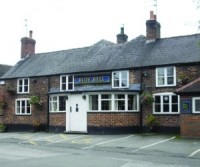The Big Interview: Tim Bacon

In an office above Knutsford Hair Spa in Cheshire, the plans for the next Alchemist bar-restaurant have overflowed the drawing board and are spread out on the floor. Tim Bacon is trying to squeeze the concept into a narrow, triangular building in Leeds.
“It’s a pain in the arse, an ergonomic nightmare,” he says. “But it’s what I enjoy doing most. I do all the designs and ergonomics. I have this wonderful ability to see space. I would have been an architect if I’d have gone to school instead of bumming around.”
Though if he hadn’t bummed around, the plain-speaking Aussie might not have become one of UK hospitality’s most successful entrepreneurs.
He has sold the Living Room chain of bars that made him a nationally-renowned operator, but since then he’s been rebuilding his Living Ventures company on the basis of a new and eclectic group of concepts. Including a pub.
The Oast House opened in November at a cost of £750,000 in the middle of Manchester’s Spinningfields office development. Its main architectural feature is an actual 16th-century oast house that Bacon found in Ireland and shipped over.
“When they saw it among the office blocks I heard one couple say, ‘this is so wrong it’s right’. And it’s gone ballistic. I’ve never seen anything like it. We opened the doors at midday and by 12.15pm it was full. It’s been full ever since. The first week it did £47,000, the second week £52,000, the third week £60,000. Everybody uses it, it’s like a party zone. I didn’t expect this, not from a traditional pub!”
It’s a traditional pub with a Living Ventures spin, though — high levels of service with everything done in style, a barbecue outside and a rotisserie and deli inside. The real departure for Bacon is that there are four cask ales on the bar.
“I’d never worked in a pub before. Ale was anathema to us! When I came over from Australia in 1987 my mates were always trying to get me to drink ale, but I thought it was like warm dishwater.”
His ‘lightbulb moment’ came on a trip to the Lake District where he was again encouraged to “try one”.
“It was Loweswater Gold, from Cumbrian Legendary Ales, and I thought ‘this is lovely’. I had two in a row and it was bang! It was just a case of finding a product you like.
“I’ve found four I like now — Loweswater Gold and Langdale from Cumbrian, Smokeless from Red-Willow and Thornbridge Jaipur IPA. They’re all on in the Oast House and we sell more of them than we do lager. But we’re not getting CAMRA (Campaign for Real Ale) drinkers, it’s the office workers.
“Doing a traditional pub has been an interesting experience,” he adds. “It’s making me re-evaluate the premises I’ve run. Pubs fit very well with the idea of the ‘third place’, somewhere that is neither home nor work. Everyone understands what a pub is and, if you get them right, people flock to them. There’s a real want there and they are glorious things.
“I’m going to do more. Pubs are the way forward!”
There’s only a hint of irony in Bacon’s belated conversion. He already has the second New World Pub Company outlet lined up, on a site in Alderley Edge, Cheshire, that was previously earmarked for an Alchemist.
Expansion
It should open in May, one of seven planned for 2012 that will take the Living Ventures estate to 33, close to the scale it was before the Living Room sale.
As well as the pubs there is the Italian-themed Gusto concept, the seafood and steak-based Blackhouse, Red Door bars, Suburbia bar-clubs, the Alchemist and an ambitious new idea called Australasia. The first, in Manchester, cost Living Ventures £2m but, with a hybrid casual-dining menu influenced by Indonesian and Japanese cooking, it’s already doing £100,000 a week.
“Certain parts of the industry are very fashion-driven, but I’ve always wanted to stay one or two steps behind the latest idea and find a concept that will last,” says Bacon. “There’s no reason why Gusto or Blackhouse can’t be here in 10 years. It’s a matter of looking after people.
“This is the first time we’ve had more than one or two concepts going at any one time. What I’m interested in now is brand development. We’d like to take a concept to 14 or 15 and then sell it. At the moment we’re concentrating on the north-west, but we’re planning an assault on London in 2013.”
At the end of last year Living Ventures secured £4m in funding for the expansion, and Bacon expects more to come from reverse premiums.
“Landlords want a trustworthy operator. We work closely alongside them and they act as our banker.
“We’re only taking leaseholds, because I understand leaseholds — but now I’m pushing 50 I’m starting to think I’d like a couple of freehold pubs.”
What strikes you most about Bacon is that whichever direction he chooses to go in he’s relaxed about it, ergonomic nightmares notwithstanding. He traces that back to his antipodean roots — and his time as a soap star on Sons and Daughters.
“Being Australian gives you a different outlook. You’re more laid-back, more casual, you take more time to look at things. And acting gives you confidence.”
There’s a natural fit between acting and bartending, as Bacon discovered when he arrived in London. “I earned a fortune at TGI Friday’s and remember those days fondly.”
After winning a cocktail competition he was invited on to Terry Wogan’s TV chatshow, and “the phone went ballistic with job offers”. He used that as a platform to launch a training business, but soon realised he needed to run his own bar and found the opportunity in a Manchester site bought from the receivers that became a JW Johnson’s.
Since then there’s been no stopping him.
“It’s always been onwards and upwards for us. We’ve skipped around the potholes and had a blessed time of it. We’ve been in growth all the time.
“Our focus is on the spaces and looking after people. Take Knutsford. The town’s having a hard time, but our bar-restaurant here is up 10%. People want to go where it’s busy and to places they trust.
“There are pressures on the business. Wage costs are increasing, energy and food costs are up. We’ve re-engineered menus and absorbed a lot. Average spend is down, but we’ve seen an increase in covers and that’s paid for us to improve profits in line with turnover.”
At its heart, there is a resilience to Living Ventures. Bacon has from the start paid attention to the individuality of his sites, rather than simply dropping in a brand. And head-office personnel have stayed pretty much the same since the first Living Room opened in 1999.
“The core team has been with us for a long time. I’d hate to have to start again,” he says. “I try to get around the sites every month, but they don’t rely on me. I’m doing what a managing director should be doing now — looking to the future.
“Oh, and I’m learning the piano. Well, you’ve got to do something with your life!”
My kind of pub
“I’m not a pub user. At most I visit six or seven pubs a year. But I’m going to take a more active interest now with a view to buying a few.
“As with anywhere, I want a friendly face, good products and a nice environment. It’s hard to choose one place, but I like the Blue Bell Inn in Smallwood, Cheshire. It’s just a traditional little pub.”
Key dates
1985
After growing up in Tasmania, Tim Bacon lands the role of Chris Bainbridge in Aussie soap Sons and Daughters
1987
Travels to Britain where he gets a job as a bartender at TGI Friday’s in Covent Garden
1989
Wins cocktail competition, appears on the Wogan chatshow and sets up the Bar Biz Training consultancy
1993
Opens first bar, JW Johnson’s in Manchester’s Deansgate
1996
Launches ViaVita bar-restaurants with Jeremy Roberts
1999
Bacon and Roberts form Living Ventures with the opening of the first Living Room in Manchester
2004
Living Room outlets operating in most major cities
2005
Buys 19-strong Est Est Est chain from The Restaurant Group, which takes a 38% stake in the business
2007
Sells 34 Living Rooms to Ultimate Leisure
2008
Business refinanced, new concepts developed
2011
Opens first ‘traditional’ pub, the Oast House in Manchester














